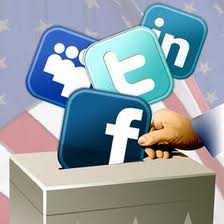
outcomes of several U.S. Senate primaries this summer. A new case study broke down just how the social network propelled one tea party candidate in Texas from a virtual unknown to a political insider.
The politico’s handbook, Campaigns & Elections, features a profile of Senate candidate Ted Cruz’s recipe for primary success by his digital strategist, Vincent Harris. Cruz was a featured speaker at last month’s Republican National Convention in Tampa, Fla.
One of the takeaways is the boost that social media can give unknown candidates who lack the resources to launch radio and television advertising.
For example, Cruz spent money on Google search ads, as well as advertising on Bing and Yahoo, which yielded a 10-to-1 return on investment.
Here’s a look at how Cruz’s Facebook strategy played out:
- Facebook ads supplemented Cruz’s organic support on Facebook, as well as Twitter.
- On the day of the election, the digital team ran a get out the vote (GOTV in campaign parlance) promoted post to fans and fans of their endorsements, which generated 793,432 impressions, 1,136 clicks, 1,880 likes, and 1,098 shares. This way, if the content wasn’t organically showing up on voters’ news feeds, it made our way onto their screens with ads reminding them to go vote.
- The Cruz Facebook page was updated 11 times that day, with a total of 2,646 shares and 14,253 likes on its posts. The David Dewhurst campaign updated its Facebook page just once, yielding 49 shares and 392 likes.
- Harris said tools to promote the campaign were shared with voters, such as a Facebook timeline cover image and profile pictures that touted its #ChooseCruz hashtag.
There’s no doubt where people are spending their time online: Facebook. The average Facebook user spends more than eight hours per month on the social network, and the Cruz campaign wanted to make sure that if a voter was on Facebook, they were interacting with us.
As far as fundraising, Harris said emails and appeals via talk radio were the most effective, although some donations were generated via Facebook. And in the waning days of the campaign, a microsite, CruzCrew.org, launched to motivate volunteers to tackle mailing and other campaign tasks.
In the end, it all comes down to engagement, as we’ve heard before. Cruz clearly had a message that resonated with voters. Yet Harris noted that, through digital media, the campaign was able to not just talk to voters, but have a productive conversation that resulted in a major victory.
Readers: Do you think campaigns this election year will turn on digital media tools such as Facebook?